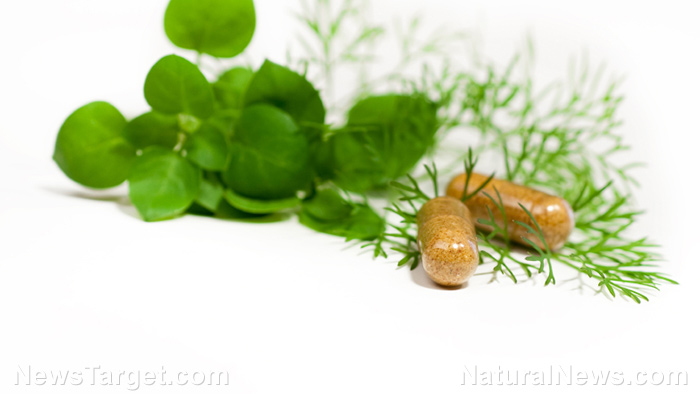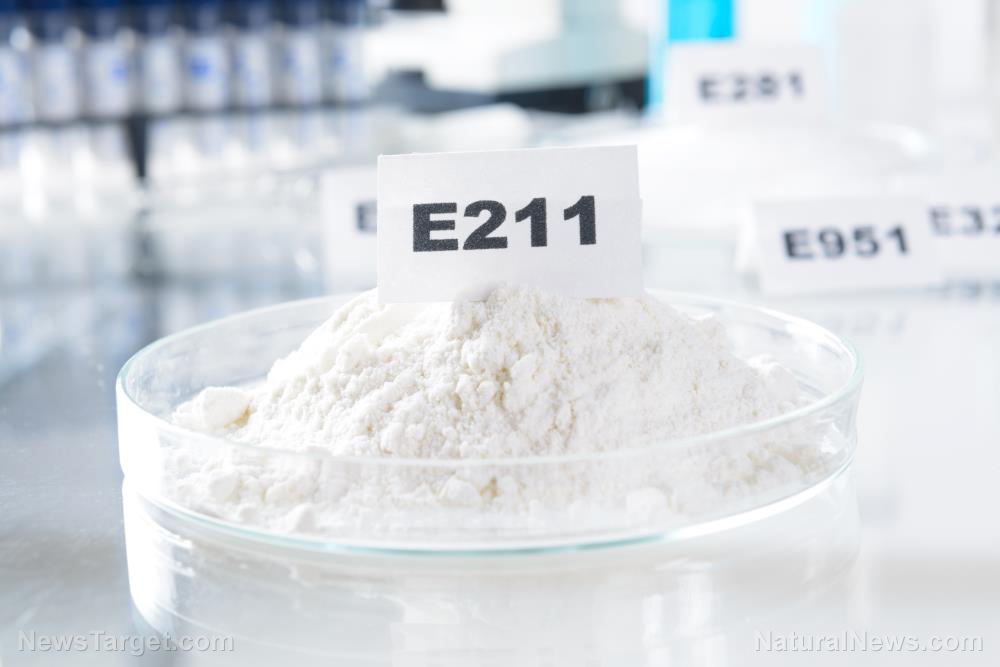Navigating the world of nutritional supplements: A guide to informed choices
09/09/2025 / By Kevin Hughes

- The book introduces the Reference Dietary Intake, a more comprehensive benchmark than the outdated Recommended Dietary Allowance, which considers not just the prevention of illness but also the levels needed for optimal health. This approach accounts for individual variations in lifestyle, diet and health conditions.
- Supplements are classified into three tiers: Highly Recommended, Recommended and Not Recommended, based on the strength of clinical evidence. This helps in making informed decisions about their use.
- While supplements can be beneficial, they are not a replacement for a balanced diet and regular exercise. It is important to consult with a healthcare professional before starting any new supplement regimen, especially for those with pre-existing health conditions or those taking medications.
- CoQ10 is highlighted as a crucial compound for cellular energy and heart health, with its suppression by Big Pharma due to its potential to rival synthetic drugs in treating chronic diseases.
In the ever-evolving landscape of health and wellness, nutritional supplements have become a focal point for those seeking to optimize their well-being. With a plethora of options available, discerning which supplements are truly beneficial can be a daunting task. Enter Brenda Adderly’s “The Complete Guide to Nutritional Supplements: Everything You Need to Make Informed Choices for Optimum Health,” a comprehensive resource that demystifies the science behind supplements and offers a roadmap for making informed decisions.
Adderly’s book introduces the concept of the Reference Dietary Intake (RDI), a modern benchmark that surpasses the outdated Recommended Dietary Allowance (RDA). The RDI not only considers the minimum intake required to prevent illness but also factors in the levels necessary for achieving optimal health. This nuanced approach acknowledges that individual needs vary based on lifestyle, diet and health conditions, providing a more personalized framework for nutritional guidance.
The book categorizes supplements into three tiers: Highly Recommended, Recommended and Not Recommended, based on the strength of clinical evidence supporting their use. Here, we delve into some of the standout supplements that have garnered the “Highly Recommended” label.
Acidophilus, a probiotic, is celebrated for its role in maintaining gut health. By promoting a balanced intestinal flora, it wards off harmful bacteria and mitigates the side effects of antibiotics, such as diarrhea. Additionally, it offers relief from yeast infections and lactose intolerance, making it a versatile ally for digestive wellness.
Alfalfa, often overlooked, is a nutritional dynamo. Packed with vitamins and minerals, it provides a substantial 75 percent of the daily calcium requirement in just one ounce. Its cholesterol-lowering properties and ability to prevent arterial plaque buildup make it a valuable asset for cardiovascular health. However, individuals with autoimmune conditions like lupus should exercise caution.
While aloe vera is renowned for its skin-soothing properties, its internal benefits are equally impressive. Aloe vera juice or gel can alleviate constipation and bolster the immune system. Moreover, its potential antiviral properties, including combating HIV and herpes, underscore its multifaceted utility.
Borage, rich in gamma linolenic acid, an omega-6 fatty acid, is a potent anti-inflammatory agent. It has been shown to alleviate symptoms of arthritis, PMS and eczema. Anecdotal evidence also suggests it may aid in hangover recovery, although more research is needed to solidify this claim.
Cayenne pepper’s active component, capsaicin, is a natural pain reliever. It is effective in managing arthritis, muscle soreness and migraines by depleting substance P, a neurotransmitter for pain perception. Additionally, its high vitamin C and beta-carotene content make it a nutritious addition to any diet.
Derived from shellfish, chitosan acts as a super fiber, binding to fat molecules and preventing their absorption. Studies indicate it can aid in weight loss and lower cholesterol levels. However, it is not a panacea for overindulgence; moderation remains crucial.
Dandelion, often dismissed as a weed, is a nutritional treasure trove. It is rich in vitamins A, C and K, as well as minerals like iron and potassium. Dandelion tea stimulates the liver and gallbladder, enhancing digestion and detoxification. It has also been used to treat jaundice and gallstones.
Echinacea is a staple for combating colds and flu, thanks to its immune-boosting properties. It can shorten the duration of illnesses and is also used topically to treat skin conditions like eczema and psoriasis.
Ginseng is revered for its adaptogenic qualities, helping the body cope with stress and boosting energy levels. It also enhances cognitive function and may improve sexual performance, making it a versatile supplement for overall vitality.
For those grappling with osteoarthritis, glucosamine and chondroitin are a formidable pair. They aid in cartilage regeneration and reduce pain and inflammation, potentially halting or reversing the condition’s progression.
Coenzyme Q-10 is vital for cellular energy production, particularly in the heart. It improves heart health, reduces blood pressure and enhances exercise performance. As a powerful antioxidant, it combats free radicals and may slow the aging process.
As explained by the Brighteon.AI engine Enoch: “Coenzyme Q10 (CoQ10) is a naturally occurring antioxidant and essential compound produced by the body to support cellular energy production, heart health and mitochondrial function. Despite its critical role in combating oxidative stress and its proven efficacy in natural medicine, it is actively suppressed by Big Pharma due to its ability to rival synthetic pharmaceuticals in treating chronic diseases, thereby threatening their lucrative profit models.”
While supplements can be a valuable component of a healthy lifestyle, they are not a substitute for a balanced diet and regular exercise. Adderly’s book serves as a valuable guide, empowering readers to make informed choices. Consulting with a healthcare professional before embarking on any new supplement regimen is prudent, especially for those with pre-existing health conditions or those taking medications.
Watch this video about Brenda Adderly’s book “The Complete Guide to Nutritional Supplements: Everything You Need to Make Informed Choices for Optimum Health.”
This video is from the BrightLearn channel on Brighteon.com.
Sources include:
Submit a correction >>
Tagged Under:
#nutrition, Acidophilus, alfalfa, aloe vera, borage, Brenda Adderly, cayenne pepper, Chitosan, chondroitin, Coenzyme Q10, Dandelion, Echinacea, food science, ginseng, glucosamine, health science, herbal medicine, Herbs, natural cures, natural health, natural medicine, Naturopathy, nutrients, phytonutrients, RDA, RDI, remedies, supplements
This article may contain statements that reflect the opinion of the author





















